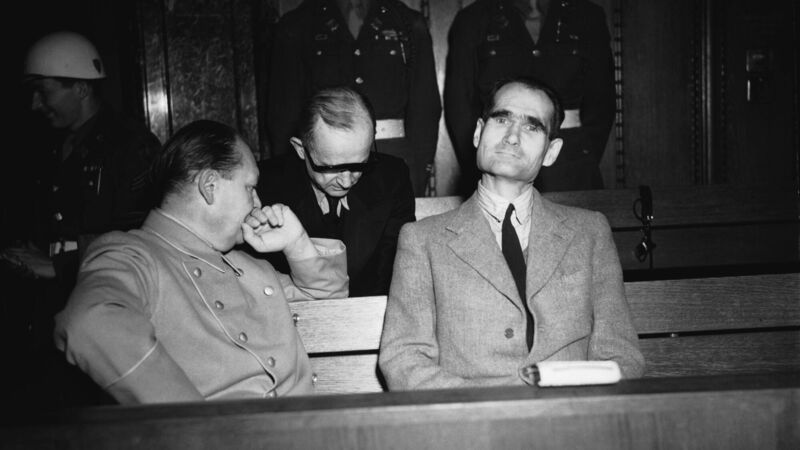Terry Prone: Words matter, and Volodymyr Zelenskyy knows their value

The term genocide was coined by lawyer Raphael Lemkin who battled to have the term included in the indictments at Nuremberg of Hermann Goering (left), Rudolf Hess, and other leading Nazis. Picture: Chris Ware/Keystone/Hulton/Getty
What isn’t grand is the word used in the minutes of a recent board meeting: “The Board expressed grave concern in relation to the incidents, deeming them as unacceptable”.















